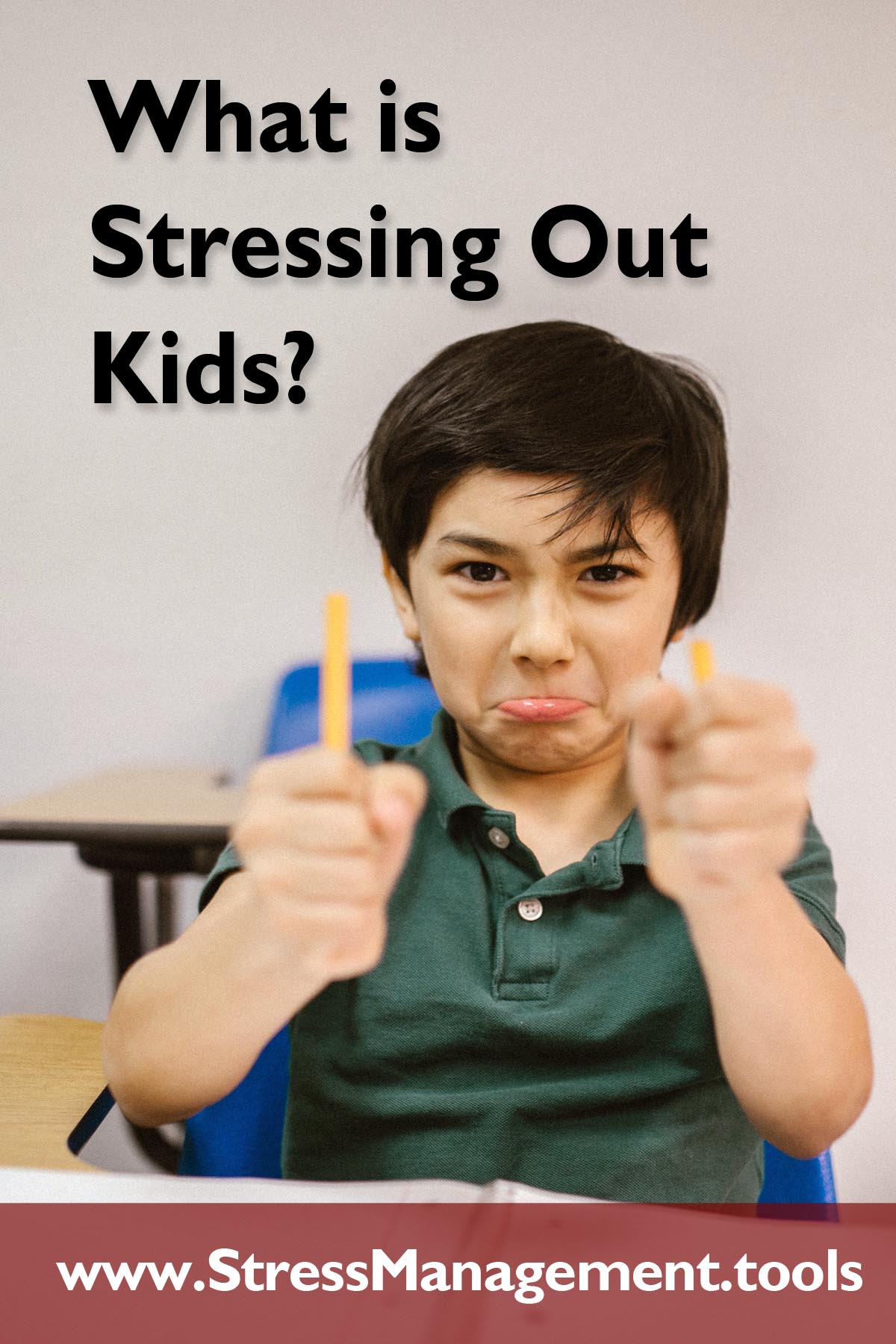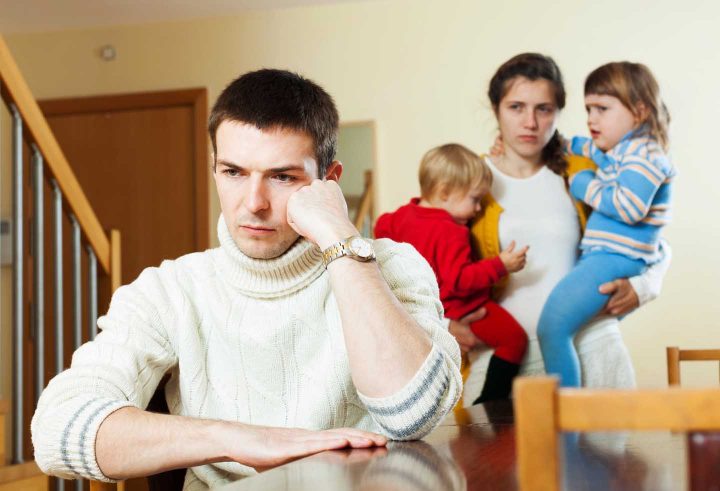When people think about who gets stressed out, their last thought is kids. From an adult’s perspective, kids have nothing to stress about. They don’t pay bills, they don’t have to work, and all they do is hang around all day playing, chatting with friends and eating. So what is stressing them out?

Theoretically, all they have to do is go to school and come back home. While this sounds like a dream to most people, there are several factors in a kid’s life that can stress them out quite a bit, and it’s important to address these factors early on so that they don’t develop any problems later in life.
One of the longest running and worst causes of stress for kids is bullying. Adults don’t face this problem nearly as much, because if someone is harassing you in the real world, you can simply leave the situation or file a complaint.
If the harassment is physical, an adult would be arrested for assault. However, kids can’t just leave school or call the police if they’re getting bullied. Some might say that they can just talk to a teacher, but that seldom fixes the problem.
Kids feel as if they’re trapped there at school with their bully, and with no way out of a harmful situation, they can get extremely stressed out every day of the week.

Another cause of stress in kids might be their home life. Unlike teenagers and young adults, kids can’t just drive away from home if it’s not a good place to live. They’re powerless in terms of moving away, and completely at their parent’s mercy.
If a child’s household is full of fighting or has abusive family members in it, the kid might get stressed out about even going home. They could have a fine life at school, but every day they have to go home at some point.
Abusive parents or siblings can absolutely ruin a child’s home life, stressing them out beyond your knowledge. In a similar situation to having a bully at school, kids can’t do anything to prevent or help their situation at home, due to the fact that they can’t escape in any way.
Being unable to leave your situation can cause more stress than anything. Recognizing stress in kids can be either easy or difficult, depending on the kid. In younger children, it will be fairly clear when they’re stressed out, because they’ll usually start to cry.
Young children cry whenever they’re stressed, upset, or feel as if anything is wrong. This type of sign is the easiest to recognize, and you certainly shouldn’t overlook it as them being a “whiny kid.”
There’s almost always a reason for a child to cry – you just have to be able to look for it. If you don’t, they’ll start to develop some long-running issues. Of course, there are many kids who have outgrown their standard crying days.
Older kids have a very different way of showing that they’re stressed out, and this is the point at which it can become more difficult, so you really need to be looking out for these kinds of signs.
One sign that a kid is stressed out is that they start to close off from other people. They might start to become incredibly quiet – not just around you, but also around other kids their age.
While some kids are naturally introverted and shy, this is a totally different situation. When kids start to close off, they won’t even be open with their own parents or with their closest friends.
Another way older kids start to show stress is by acting out. Kids with a bad home life and similar problems might start to act out at school, at home, and elsewhere for the sake of getting positive attention from their friends – something that they desperately need.
Another common sign involves kids becoming reluctant to do certain things. For example, if a child is reluctant to go to school, there might be deeper meaning to it than them just not wanting to go because it’s boring.
They might be getting bullied at their school, and they’re avoiding going because they’re scared of what awaits them. Similarly, they might be reluctant to come home from school if they’re afraid of their home lives.
Another common source of stress for children is if their parents are going through a divorce. Parents are very much acting as a point of reference for children. If one of the parents is suddenly leaving from home, this is quite a significant disruption of the secure environment that the child may have felt at home. These kind of changes can be pretty difficult to digest for a child and causing them a significant amount of stress, so don’t be surprised if your child will close off or get unruly when you are going through a divorce.

There are tons of different solutions when it comes to helping kids deal with stress. The first one is addressing the problem at its source. If it’s the home life that the child is stressed about, then try to improve it by going to family counseling, where the child can clearly communicate their feelings about their home life to a counselor or to their parents directly.
You can also directly address the source of bullying by getting onto the parents of the bully, in an attempt to get the parents to reprimand them appropriately. The bully’s parents might be totally unaware of what’s going on, so informing them might help the situation. Try to understand the circumstances of their family as well. Their child may be aggressive as an outlet of other problems he is facing. Maybe you can help resolve another dilemma in the process.
Another solution for improving a child’s stress is to remove them from a stressful situation. This applies best to the bullying situation. If you’ve already tried talking to the school’s administration, to the bully’s family, and to the teachers, then it might be time to switch your child over to another school or choose a homeschooling option.
This is best done early on, so that the child doesn’t have to endure years and years of bullying. This also allows them to get a fresh start at a new location.
If you feel that you have done whatever needed to adequately limit the bullying, without being able to stop it completely, one of the best options that you can take is to just talk to your child and help them better understand the scope of time that they’re in.
While they might be stressed out about school and all of that right now, they need to know that things do get better. It can be helpful to explain to them how small of a portion of their life this will be.
Show them a timeline of a person’s life from age 0 to 100 and how small the school years are in that line of existence. It’s important to get their thoughts on their own situation as well, because it makes them feel respected, as if they have a bit of power in their tough situation.
We have seen that children can face significant stressors in their lives. If they are kept unresolved, it can develop into more serious problems in adulthood. Find a way to adequately resolve their issues, and your child will thank you for having done the right thing to protect them.
Do you need a guide to help you understand how to cope with Stress in an all inclusive approach? Learn how to combat stress, mentally, physically, emotionally and strategically in your life.

Martin Neumann was trained for Lifestyle Interventions in 1998 at Wildwood Lifestyle Center & Hospital. Since then he has lectured in different parts of the world about a healthy lifestyle and natural remedies. He is the founder of the Abundant Health website.
Leave a Reply